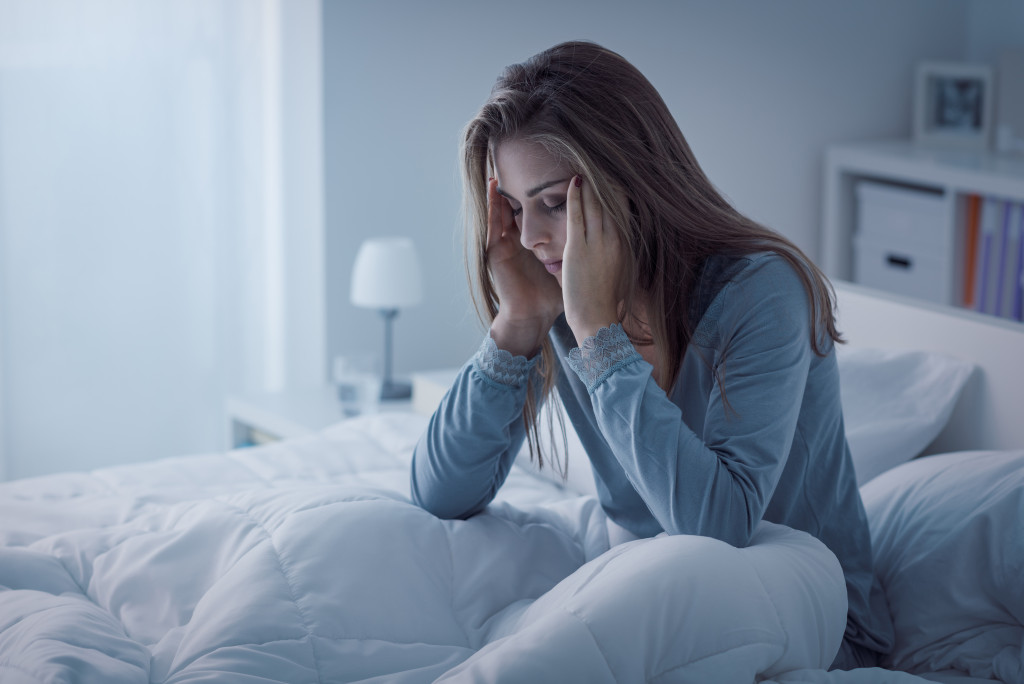- Insomnia is a common sleep disorder that affects women more than men.
- Causes of insomnia include stress, depression, anxiety, physical pain, medications, and lifestyle habits.
- Women may be more susceptible to insomnia due to hormonal changes, stress, and anxiety.
- Insomnia can lead to an increased risk of depression, anxiety, heart disease, weakened immunity, and obesity.
- Women should seek help from a doctor or mental health provider if they think they may be suffering from insomnia.
Insomnia is a sleep disorder that affects women more than men. It can cause fatigue, irritability, and difficulty concentrating during the day. It can also have long-term implications on a woman’s health, leading to an increased risk of depression, anxiety, and other health problems. So how does insomnia affect women specifically? Here’s a closer look at what women need to know about this common sleep disorder.
What Is Insomnia?
Insomnia is characterized by difficulty falling asleep or staying asleep. People with insomnia may also experience other symptoms, such as waking up frequently during the night or waking up early in the morning and being unable to fall back asleep. Insomnia can range from mild to severe and can last for days, weeks, months, or even years.
Common Causes of Insomnia
Insomnia can be caused by various factors such as stress, depression, anxiety, physical pain, environmental noise or light pollution, medications, an unbalanced diet, caffeine intake too close to bedtime, and lifestyle habits like working late shifts or not having regular sleeping hours. Identifying the cause is essential to find the most effective treatment for your particular situation.
Insomnia Treatment Options
Fortunately, many treatment options are available for those suffering from insomnia. Of course, depending on the root cause of insomnia, some treatments may work better than others. Here are some of the most common treatments for insomnia:
Cognitive Behavioral Therapy (CBT)
Cognitive Behavioral Therapy (CBT) is an effective technique to recognize and modify problematic thinking and conduct. For those people battling sleepless nights caused by depression, stress, or anxiety, CBT could be the perfect solution.
Medication

Medication can sometimes help people with insomnia get more restful sleep. Common medications used to treat insomnia include benzodiazepines, a class of drugs that act as sedatives and can help people fall asleep. However, benzo use must be monitored carefully due to the risk of addiction, and benzo detoxification may be necessary if withdrawal symptoms occur. Some patients rely heavily on benzos for sleep, but detoxification can help wean them off the medication and get them back to a healthy sleep pattern.
Physical Activity
Regular physical activity is vital for overall health, and it’s also an effective treatment for insomnia. Exercise helps reduce stress, releases endorphins that promote better sleep, and tires the body out, so it’s ready for restful sleep. You can also create a relaxing nighttime routine with pre-bedtime stretching or yoga.
Sleep Hygiene
Good “sleep hygiene” is essential for everyone, not just those struggling with insomnia. Tips like setting a consistent sleep schedule, avoiding electronics before bedtime, and creating a relaxing bedroom environment can help people achieve better quality sleep. For example, ensuring your bedroom is dark and quiet can help you relax and fall asleep more easily.
How Does Insomnia Affect Women Differently Than Men?

Studies show that women are twice as likely as men to suffer from insomnia—and it’s not just because they tend to have busier lives. Women are also more prone to hormonal changes due to menstruation and pregnancy, which can contribute to sleep disturbances.
In addition, women may experience greater stress and anxiety due to work or family responsibilities. These factors can affect the quality of their restful sleep and worsen insomnia symptoms.
The Effects of Insomnia on Health
Insomnia can significantly impact a person’s overall health—but it may be even more noticeable in women due to the unique challenges they face in balancing work and family life. Research shows that insomnia can lead to an increased risk of depression, anxiety, heart disease, weakened immunity, and even obesity.
For this reason, it’s essential for women struggling with insomnia to seek help from their doctor or mental health provider immediately, so they can get the treatment they need before any further damage is done.
Final Thoughts
Insomnia is a serious condition that disproportionately affects women more than men—but there is hope! By understanding how insomnia affects them differently than men and seeking appropriate treatment options such as lifestyle changes or CBT therapy, women can overcome their battle with this common sleep disorder and improve their overall physical and mental well-being. If you think you may be suffering from insomnia, don’t hesitate to seek professional help today!
